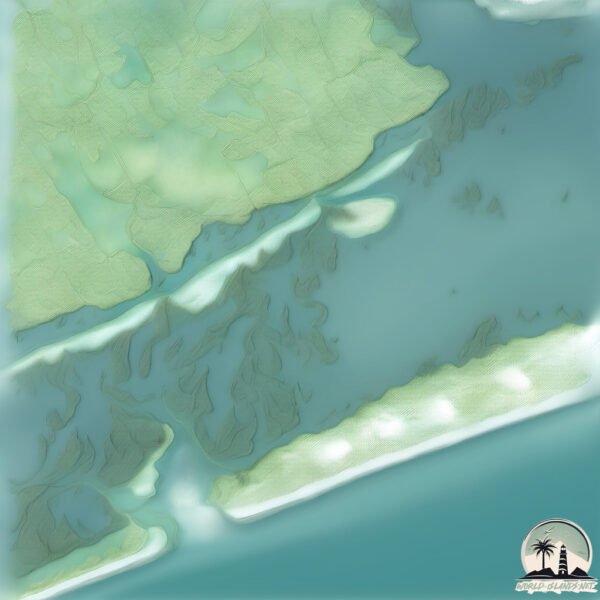Finns

Welcome to Finns, a Temperate island in the North Atlantic Ocean, part of the majestic Atlantic Ocean. This guide offers a comprehensive overview of what makes Finns unique – from its geography and climate to its population, infrastructure, and beyond. Dive into the details:
- Geography and Size: Explore the island’s size and location.
- Climate and Weather: Weather patterns and temperature.
- Topography and Nature: Uncover the natural wonders of the island.
- Infrastructure and Travelling: Insights on reaching, staying, and making the most of your visit.
- News and Headlines: Latest News.
Geography and size of Finns
Size: 2.419 km²
Coastline: 18.2 km
Ocean: Atlantic Ocean
Sea: North Atlantic Ocean
Continent: North America
Finns is a Small Island spanning 2.4 km² with a coastline of 18.2 km.
Archipel: –
Tectonic Plate: North America – Covers North America and parts of the Atlantic and Arctic Oceans, characterized by diverse geological features and varying levels of seismic activity.
The geographic heart of the island is pinpointed at these coordinates:
Latitude: 34.64117273 / Longitude: -77.16904593
Climate and weather of Finns
Climate Zone: Temperate
Climate Details: Humid Subtropical Climate
Temperature: Hot Summer
Climate Characteristics: With continuous rainfall and hot summers, this climate is common in some coastal regions, supporting diverse vegetation.
Topography and nature of Finns
Timezone: UTC-05:00
Timezone places: America/New_York
Max. Elevation: -1 m
Mean Elevation: -2 m
Vegetation: Wetland
Tree Coverage: 5%
The mean elevation is -2 m. Remarkably, this unique island barely emerges above the sea level, showcasing nature’s fascinating interplay with the ocean. The island is characterized by Plains: Flat, low-lying lands characterized by a maximum elevation of up to 200 meters. On islands, plains are typically coastal lowlands or central flat areas.
Dominating Vegetation: Wetland
These areas are saturated with water, either permanently or seasonally, and support aquatic plants. Wetlands are important for biodiversity and water filtration. Finns has a tree cover of 5 %.
Vegetation: 1 vegetation zones – Minimal Diversity Island
These islands exhibit the most basic level of ecological diversity, often characterized by a single dominant vegetation type. This could be due to extreme environmental conditions, limited land area, or significant human impact. They represent unique ecosystems where specific species have adapted to thrive in these singular environments.
Infrastructure and Travelling to Finns
Does the island have a public airport? no.
There is no public and scheduled airport on Finns. The nearest airport is Coastal Carolina Regional Airport, located 48 km away.
Does the island have a major port? no.
There are no major ports on Finns. The closest major port is SWANSBORO, approximately 4 km away.
The mean population of Finns is 3 per km². Finns is Gently Populated. The island belongs to United States of America.
Continuing your journey, Bogue Banks is the next notable island, situated merely km away.
United States of America is classified as Developed region: G7: Group of Seven – Major advanced economies, including Canada, France, Germany, Italy, Japan, the United Kingdom, and the United States. The level of income is High income: OECD.
News – Latest Updates and Headlines from Finns
Stay informed with the most recent news and important headlines from Finns. Here’s a roundup of the latest developments.
Please note: The data used here has been primarily extracted from satellite readings. Deviations from exact values may occur, particularly regarding the height of elevations and population density. Land area and coastline measurements refer to average values at mean high tide.
